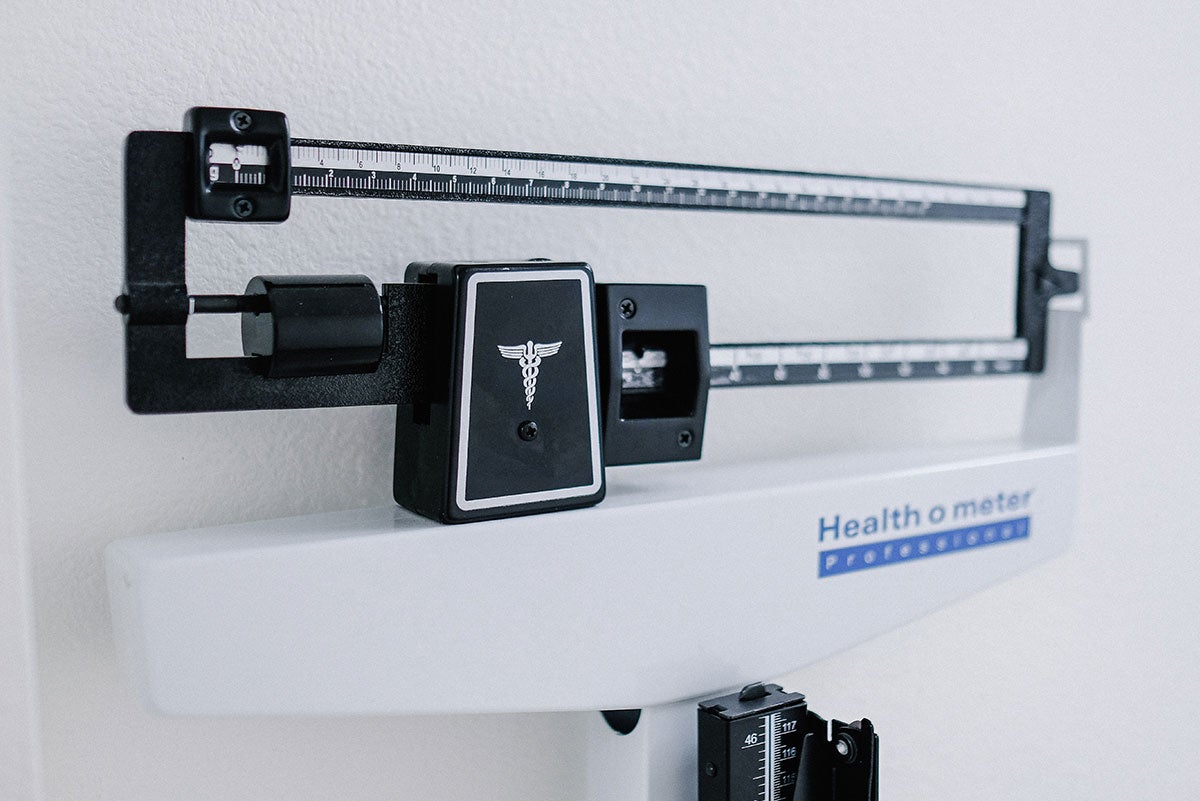Bariatric Surgery: Could It Be Right For You?
June 12, 2023
By: Julie Richardson, MS, RD, LD, CNSC
Categories: Nutrition & Diet, Weight Loss
You may have been struggling with your weight for years, trying one diet or exercise program after another, with varying results. You may feel frustrated and are wondering what else you can do to lose weight. You are not alone. When your BMI (Body Mass Index) is greater than 35, you only have a 1% chance of reaching and maintaining a normal body weight. That means that it is almost impossible to reach your goals with diet and exercise alone. You may have been wondering if bariatric surgery could be the answer and if it is right for you.
What is bariatric surgery?
Bariatric surgery is another word for weight loss surgery. It is a surgical procedure performed to help you lose weight. On average, you can lose 20-45% of your total body weight after surgery. The amount of weight loss will vary by procedure type and your commitment to diet and lifestyle changes.
What does bariatric surgery change?
Bariatric surgery changes the capacity and function of your stomach and possibly your small intestine. That means it does more than simple weight loss. It is also considered a metabolic procedure because it causes changes in appetite, feelings of hunger/fullness, and how your body uses calories. This means that these surgeries not only cause weight loss but can help treat many of the diseases of obesity, called comorbidities. Here are some of the most common comorbidities and the likelihood that bariatric surgery may lead to resolution. The likelihood of resolution varies between the different types of surgical procedures:
- 50-85% of high blood pressure
- 40-90% of diabetes
- 50-90% of high lipids
- 50-75% of sleep apnea
- 65-95% of gastroesophageal reflux disease (GERD)
Who qualifies for bariatric surgery?
You may be wondering if you would qualify for bariatric surgery. New guidelines just came out from the American Society for Metabolic and Bariatric Surgery and the International Federation for the Surgery of Obesity and Metabolic Disorders. These new guidelines lower the threshold for recommending bariatric surgery. These new guidelines for bariatric surgery include:
1. A BMI greater than or equal to 35, regardless of comorbiditie
2. A BMI of 30.0-34.9 with comorbidities (diabetes, high blood pressure, high cholesterol, sleep apnea, heart disease, fatty liver, gastroesophageal reflux disease, etc.)
3. Hard to control diabetes with a BMI greater than or equal to 30.0
However, most insurance companies have yet to adopt these new recommendations. They still use the older standards which include:
1. A BMI greater than or equal to 40.0, regardless of comorbidities
2. A BMI of 35.0-39.9 with comorbidities (diabetes, high blood pressure, high cholesterol, sleep apnea, heart disease, fatty liver, gastroesophageal reflux disease, etc.)
Please check with your insurance company to clarify their bariatric surgery criteria. Bariatric surgeons may have additional criteria specific to them and the hospital where they perform surgery. Some of the additional criteria may include age, size limits, drug/alcohol/tobacco use, and mental/physical comorbidities. These additional criteria are to keep you safe and make sure that you have the best results after surgery.
Conclusion
If you have been struggling to control your weight with diet and exercise and you meet the criteria listed above, you may be an ideal candidate for bariatric surgery. Bariatric surgery is not an easy way out. It is just another tool, though a very powerful tool, to help you lose weight. You will still need to make lifelong diet and lifestyle changes. However, with bariatric surgery and commitment to following the diet and lifestyle recommendations, the rewards can be truly life-changing.
St. Mary’s Athens Hospital Can Help You Lose Weight
If you are interested in continuing your weight loss journey with the help of bariatric surgery, Athens General and Colorectal Surgeons and St. Mary’s Hospital in Athens can help. Please contact our office for more information at (706) 548-5488. We are here to help you every step of the way and wish you the best of luck on your journey!

Request a bariatric surgery application today.
Take the first step toward achieving weight loss through bariatric or weight loss surgery.
